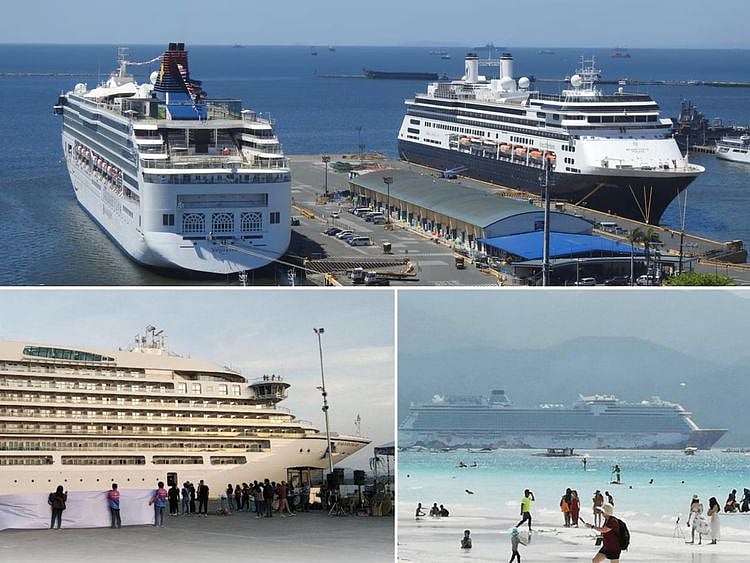ASEAN common visa: Schengen-like destination for tourists in the works
30, 60, or 90-day common visa? Support for bloc's common visa grows, latest developments

Manila: The idea of an ASEAN Common Visa (ACV) is firming up.
Nothing solid or time-bound has been decided yet. Citizens of ASEAN (Association of Southeast Asian Nations) countries already travel visa-free within the region.
Support for ACV, particularly from tourism-driven nations (most of the 10 current member-countries), is strong.
To boost tourist numbers from outside the bloc, there’s been a growing clamour for seamless travel across the member-countries: Brunei, Cambodia, Indonesia, Laos, Malaysia, Myanmar, the Philippines, Singapore, Thailand, and Vietnam.
Timor Leste, granted “in-principle” admission in late 2022 and observer status to attend meetings, is in the process of becoming the 11th member (expected in October 2025).
Could the ASEAN Common Visa finally pan out? If so, then when? And in what form?
Let's explore:
What's the big idea?
The concept of an ASEAN Common Visa (ACV), often compared to the Schengen Visa in Europe, has been under discussion for years.
The proposal, aimed to simplify intra-regional travel and extend visa validity, is seen as a natural progression of economic, political and cultural integration that forms part of the ASEAN community.
Visa duration: 30 days, 60 days or 90 days?
A visit visa of up to 90 days across these countries could give a significant boost to regional tourism and economic integration.
Below are the latest developments:
Original ACV proposal: Thailand has been a key advocate, with former Prime Minister Srettha Thavisin proposing a six-nation visa (covering Thailand, Malaysia, Vietnam, Cambodia, Laos, and Myanmar) in 2024.
Manila chimes in: The Philippines has reaffirmed its support for a unified ASEAN visa system. In May 2025, Tourism Secretary Christina Garcia Frasco endorsed the initiative at the Skift Asia Forum in Bangkok, emphasising its potential to boost regional tourism by treating ASEAN as a single destination. She highlighted the tagline “A Destination for Every Dream” and the region’s cultural and natural assets.
90-day common visa: The Thai proposal aimed to simplify intra-regional travel and extend visa validity, potentially up to 90 days across these countries.
30-day tourist visa: The ASEAN Visa Unification program envisions a single visa allowing up to 30 days of travel across all member states with a streamlined online application process (this remains in the planning phase as of August 2025; there’s no confirmed launch date).
ASEAN-India Summit: At the 21st ASEAN-India Summit (October 10, 2024), in Vientiane, Lao PDR attended by member states and Indian PM Narendra Modi, the bloc's member reiterated their commitment to strengthening the ASEAN Community through heightened cooperation across several "pillars": infrastructure, narrowing development gaps, enhancing economic integration, promoting people-to-people exchanges, and strengthening capacity and institutional effectiveness.
In June 2025, China announced a so-called “ASEAN Visa” for citizens of the 10 ASEAN countries and ASEAN observer Timor-Leste (This is not a unified ASEAN visa but rather a Chinese policy to facilitate travel to China, building on mutual visa exemptions with countries like Singapore, Thailand, and Malaysia, and the “Lancang-Mekong visa” for Mekong River nations. This move aims to enhance cross-border travel and strengthen China-ASEAN ties.)
Current status:
A fully unified ACV has not yet been implemented.
Negotiations are ongoing, but challenges include aligning visa policies across member states, harmonising immigration processes, and addressing security concerns.
For instance, Vietnam’s e-Visa requirements for certain nationalities (e.g., Chinese and US citizens) complicate uniformity.
Studies show that the economic benefits of an ACV far outweighs the risks.
Boosting regional tourism
The 2016 World Economic Forum report estimated that a common visa would have following upsides:
Boost regional tourism
Create 333,000-654,000 jobs, and
Add $12 billion to the region’s economy, underscoring the economic incentive.
Existing visa policies
Currently, ASEAN citizens can travel visa-free among member states for up to 14 days (sometimes longer, depending on bilateral agreements) for tourism purposes, provided they hold a passport valid for at least six months.
For non-ASEAN nationals, individual visas or e-Visas are required for most member countries, though some, like Vietnam and Indonesia, have expanded visa-free policies or e-Visa systems for specific nationalities.
Challenges
The initiative faces logistical and political hurdles.
These include standardising visa durations, security protocols, and application processes.
While discussions continue to gain momentum, driven by the potential for economic and tourism growth, no concrete date for its kick-off has been confirmed.
At the moment, the ASEAN joint-visa dream rides on one big “IF”: how quickly member states can dodge red tape and rally everyone on board.
We promise to keep you posted on the latests ACV developments.
Sign up for the Daily Briefing
Get the latest news and updates straight to your inbox
Network Links
GN StoreDownload our app
© Al Nisr Publishing LLC 2026. All rights reserved.